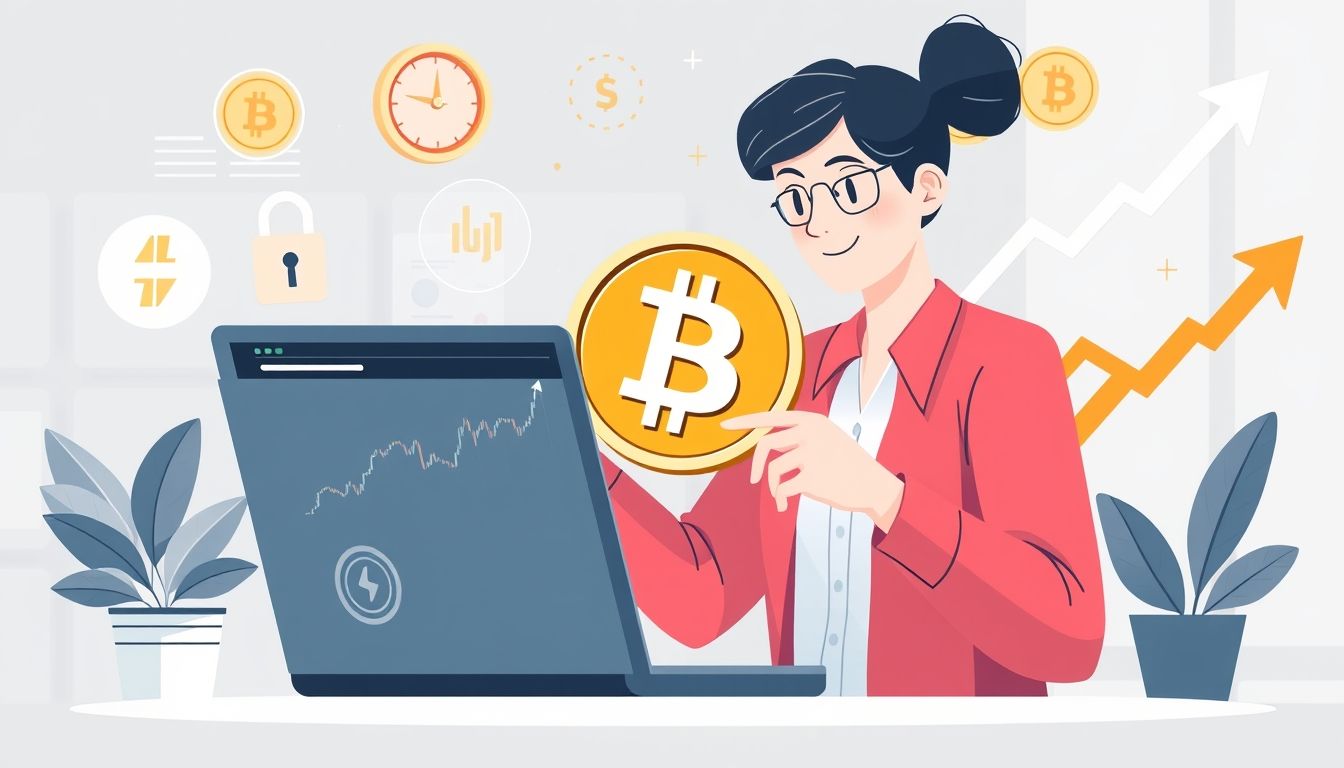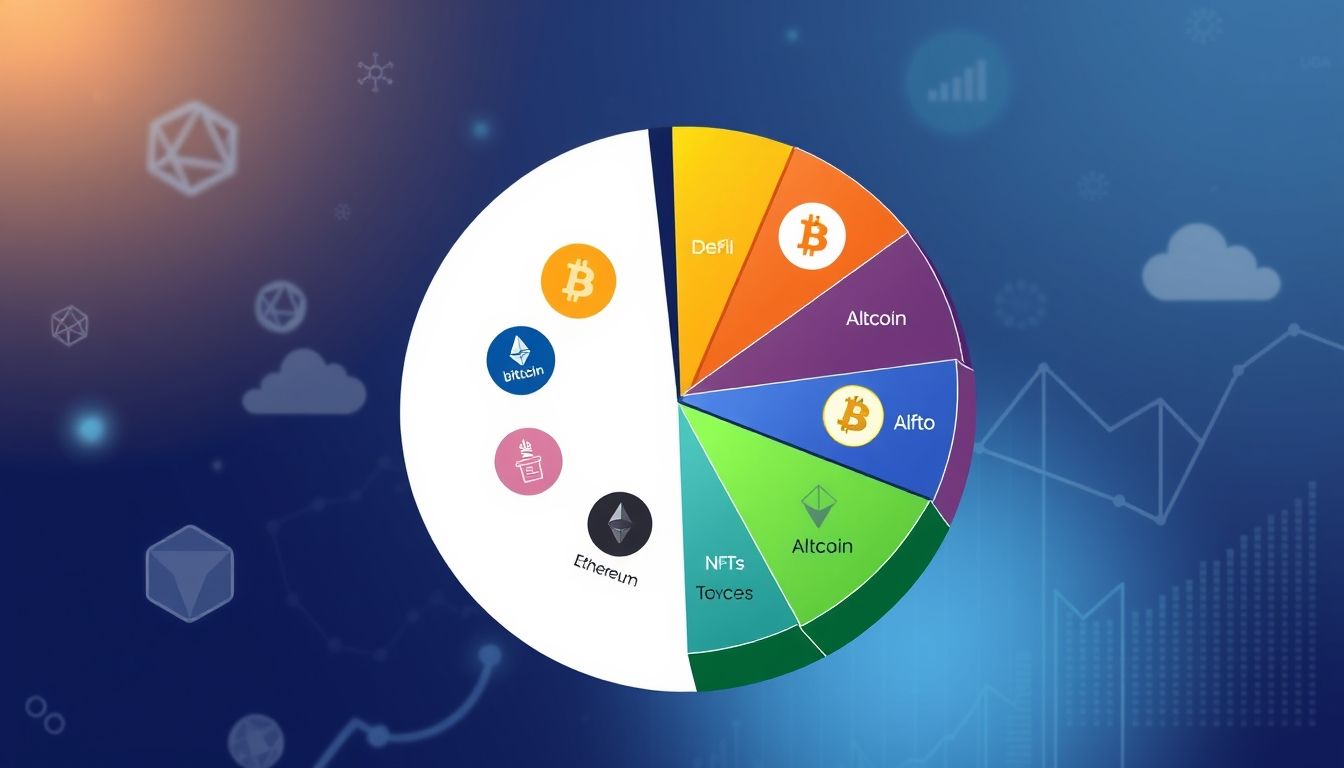Introduction to the World of Bitcoin and Safe Investing
Bitcoin, the decentralized digital currency, has revolutionized the world of finance. But before diving into this exciting world, it is essential to understand the basics and take the necessary precautions to ensure a safe investment experience.
What is Bitcoin?
Bitcoin is a decentralized digital currency that operates on blockchain technology. It is characterized by decentralization, meaning it is not controlled by any central bank or government. Bitcoin is traded online through digital currency exchanges.
Why Invest in Bitcoin?
- Potential for High Returns: Bitcoin has seen tremendous growth in value over the years, making it an attractive option for investors.
- Hedge Against Inflation: Some consider Bitcoin a store of value that protects against the erosion of the value of paper currencies due to inflation.
- Decentralization: Bitcoin offers an alternative to the traditional financial system controlled by governments and banks.
- Ease of Transfer: Bitcoin can be transferred easily and quickly across borders without the need for intermediaries.
The Basic Steps to Buying Bitcoin Safely
Buying Bitcoin is not as complicated as it seems, but it requires following specific steps to ensure safety and avoid fraud.
1. Choosing a Reliable Exchange Platform
The first step is to choose a reliable and licensed digital currency exchange platform. There are many platforms available, but you should make sure that it has a good reputation and provides strong security measures. Among the popular platforms are:
- Binance
- Coinbase
- Kraken
- BitOasis (Arabic platform)
Tip: Before registering on any platform, do thorough research and read reviews from other users.
2. Creating and Activating an Account
After choosing the platform, create a new account and activate it. Most platforms require providing personal information and identification documents to verify your identity. This procedure is necessary to comply with laws and prevent money laundering.
3. Enabling Two-Factor Authentication (2FA)
To further secure your account, enable two-factor authentication. This feature requires entering an additional code sent to your phone or email when logging in or making transactions. This prevents anyone else from accessing your account even if they have your password.
4. Depositing Funds into Your Account
After activating your account, you can deposit funds into it. Most platforms support different payment methods, such as bank transfers, credit cards, and debit cards. Choose the method that suits you and make sure to follow the instructions carefully.
5. Buying Bitcoin
Once you have deposited funds into your account, you can start buying Bitcoin. You can buy Bitcoin directly from the platform or by placing a buy order at a specific price. Monitor the market and wait until the price reaches the level you want before completing the transaction.
6. Storing Bitcoin Safely
After buying Bitcoin, it is important to store it safely. There are several ways to store Bitcoin, each with its advantages and disadvantages:
- Hardware Wallets: Considered the most secure, as they store your private keys on a physical device that is not connected to the internet.
- Software Wallets: These are applications that you can install on your computer or smartphone.
- Web Wallets: These are online wallets offered by trading platforms.
- Paper Wallets: These are private keys printed on paper.
Tip: If you plan to store a large amount of Bitcoin, it is best to use a hardware wallet.
Understanding the Risks Associated with Bitcoin and How to Manage Them
Investing in Bitcoin involves risks, and it is important to understand these risks and how to manage them before starting to invest.
Price Volatility
Bitcoin prices are highly volatile and may experience sharp rises and falls in a short period. This means that you may lose part or all of your investment if the price drops.
Fraud
There are many scams related to Bitcoin, such as Ponzi schemes and fake investment offers. Be careful and avoid investing in anything that seems too good to be true.
Cybersecurity
Digital currency exchange platforms and Bitcoin wallets are vulnerable to cyberattacks. If your account or wallet is hacked, you may lose your Bitcoin.
Regulation
Regulations related to Bitcoin are still evolving in many countries. Changes in regulations may affect the value of Bitcoin or your ability to use it.
Tips for Managing Risks
- Only Invest What You Can Afford to Lose: Do not invest money that you need to cover your basic expenses.
- Diversify Your Investments: Do not put all your money in Bitcoin.
- Do Thorough Research: Before investing in any digital currency, do thorough research and understand the risks associated with it.
- Use Strong Security Measures: Enable two-factor authentication and use strong passwords.
- Stay Informed: Keep up with the news and developments related to Bitcoin and digital currencies.
Market Analysis and Making Informed Investment Decisions
Before buying Bitcoin, it is important to analyze the market and make informed investment decisions. This requires understanding the factors that affect the price of Bitcoin and how to assess risks.
Factors Affecting the Price of Bitcoin
- Supply and Demand: Like any other commodity, the price of Bitcoin is affected by supply and demand.
- News and Events: News and events related to Bitcoin and digital currencies can affect its price.
- Government Regulations: Government regulations can affect the price of Bitcoin and your ability to use it.
- Public Sentiment: Public sentiment towards Bitcoin can affect its price.
Market Analysis Tools
- Technical Analysis: Uses charts and technical indicators to predict the price movement of Bitcoin.
- Fundamental Analysis: Analyzes the fundamental factors that affect the price of Bitcoin, such as supply and demand, news, and events.
- Sentiment Analysis: Analyzes public sentiment towards Bitcoin through social media and news.
Tips for Making Informed Investment Decisions
- Set Your Investment Goals: Before investing, set your investment goals and what you hope to achieve.
- Set a Budget: Determine the amount you can invest in Bitcoin.
- Do Thorough Research: Before investing, do thorough research and understand the risks associated with it.
- Be Patient: Investing in Bitcoin is a long-term investment.
- Don't Follow the Crowd: Don't invest in Bitcoin just because others are doing it.
Taxes and Legal Regulations Related to Bitcoin
It is important to understand the taxes and legal regulations related to Bitcoin in your country. These regulations may vary from country to country and may change over time.
Taxes
Your profits from trading Bitcoin may be subject to tax. Check the tax laws in your country to find out how to report your earnings and pay the taxes due.
Legal Regulations
The uses of Bitcoin may be subject to legal restrictions in some countries. Check the legal regulations in your country to find out if you are allowed to use Bitcoin.
The Potential Future of Bitcoin and Its Impact on the Global Economy
Bitcoin has the potential to change the way we deal with money. However, there are still many challenges that need to be overcome before Bitcoin becomes a mainstream part of the global economy.
Opportunities
- Global Payments: Bitcoin can be used to make fast and cheap global payments.
- Financial Inclusion: Bitcoin can provide access to financial services for people who cannot access them through the traditional financial system.
- Innovation: Bitcoin can stimulate innovation in the field of financial technology.
Challenges
- Volatility: The volatility of Bitcoin prices makes it unsuitable for use as a daily currency.
- Scalability: The Bitcoin network is limited in the number of transactions it can process per second.
- Regulation: Regulatory uncertainty prevents the widespread adoption of Bitcoin.
Advanced Tips for Bitcoin Investors
If you are an experienced Bitcoin investor, there are some advanced tips that can help you make the most of your investment.
Using Stop-Loss Orders
Stop-loss orders can be used to limit your losses in case the price of Bitcoin drops. A stop-loss order is an order to sell your Bitcoin if the price reaches a certain level.
Using Leverage
Leverage can be used to increase your potential profits, but it also increases your risks. Leverage is borrowing money to invest in Bitcoin.
Participating in the Bitcoin Community
Participating in the Bitcoin community can help you stay up-to-date on new developments and learn from other investors.
Common Mistakes to Avoid When Buying Bitcoin
There are some common mistakes that beginners make when buying Bitcoin. Avoid these mistakes to ensure a safe and profitable investment experience.
Not Doing Enough Research
One of the biggest mistakes beginners make is not doing enough research before investing in Bitcoin. Make sure you understand the risks associated with Bitcoin before investing your money.
Investing Too Much
Don't invest more than you can afford to lose. Bitcoin is a risky investment, and you may lose part or all of your investment.
Not Securing Your Account
Make sure to secure your account using two-factor authentication and use a strong password. This will prevent anyone else from accessing your account and stealing your Bitcoin.
Useful Resources for Learning More About Bitcoin
There are many useful resources that can help you learn more about Bitcoin.
Websites
- Bitcoin.org
- CoinDesk
- CoinMarketCap
Books
- "The Bitcoin Standard" by Saifedean Ammous
- "Mastering Bitcoin" by Andreas Antonopoulos
Online Courses
- Coursera
- Udemy
Disclaimer: This article is for informational purposes only and should not be considered financial advice. Consult a financial advisor before making any investment decisions.




